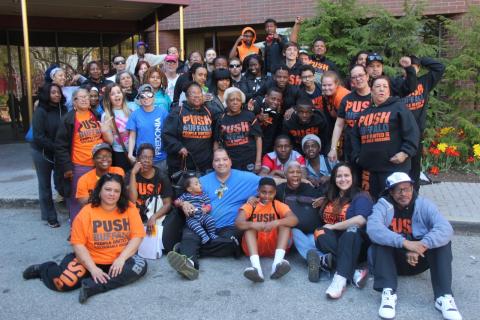The Greater Southwest Development Corporation (GSDC) is a CDC leader in commercial and industrial development. Successes include developing a supermarket, attracting the interest of developers seeking to build a ten-screen movie theater, and bringing a newly constructed plastics manufacturing plant owned and operated by an African-American female entrepreneur to a previously underutilized site at 77th Street and Columbus Avenue. Since its establishment in 1974, GSDC’s initiatives have resulted in over $500 million in development activity in southwest Chicago.
